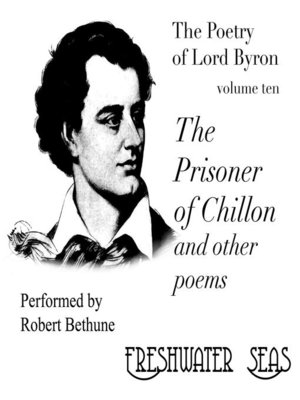
Sign up to save your library
With an OverDrive account, you can save your favorite libraries for at-a-glance information about availability. Find out more about OverDrive accounts.
Find this title in Libby, the library reading app by OverDrive.



Search for a digital library with this title
Title found at these libraries:
| Loading... |
This volume of The Poetry of Lord Byron is focused on work in which Byron dealt with certain themes that recurred throughout his career, especially personal integrity in the search for freedom and for love, and the suffering that can go with that search.
The Prisoner of Chillon, the keynote piece of this volume, is one of Byron's most riveting pieces. Based on the true story of Francois Bonivard, it tells its story of political repression and human endurance in the voice of the last of three brothers imprisoned in the bowels of the castle at Chillon and left to rot.
The Age of Bronze is Byron's sardonic look at the great-power maneuverings of his day.
Beppo is a comic look at the eternal triangle and how Italian mores of his day found it actually rather convenient.
The Island is Byron's re-imagining of the fate of the mutineers from the H. M. S. Bounty. His real interest seems to lie in unrolling a romantic adventure, and he manages it quite well.
Mazeppa is equally romantic. A tale of war and love, it is told as reminiscence from the youth of an old general, who went through combat, torture, and near death when he found himself in love with a warlord's wife.
The Ode on Venice is an elegy for Venice as Byron saw it: a city fallen on hard times from former greatness. The degradation of the Venetian Republic is contrasted with the rise of the United States as a home of freedom for mankind.
Parisina tells the tale of the revenge of an Italian prince on his unfaithful wife and illegitimate son. Power conquers love through brutality: an outcome that does not cause Byron to flinch.
A section of poems from 1816 includes poems of deep mystery, such as The Dream and Darkness alongside poems of regret, such as A Fragment and Churchill's Grave.
Finally, Byron left us a series of poems about Napoleon Bonaparte, in which we can trace, over the span of some years, Byron's shifting feelings about the emperor, sometimes seen as a bulwark of freedom, other time seen as a victim of his own pride and power.






